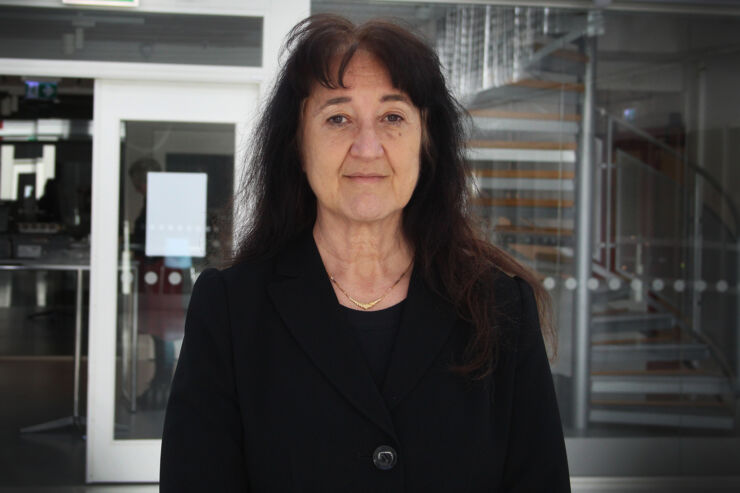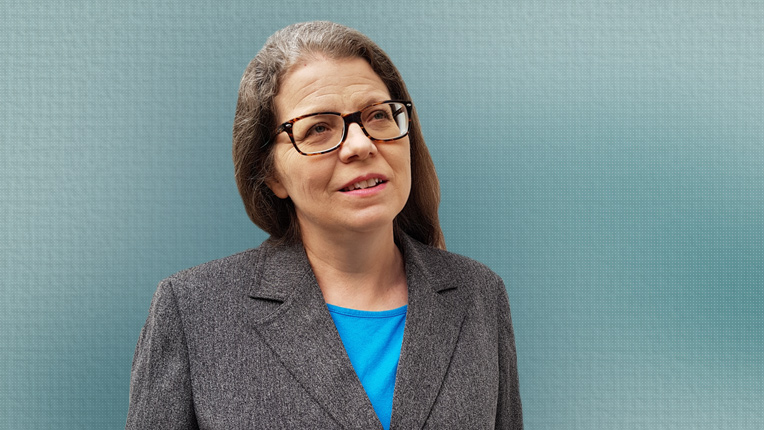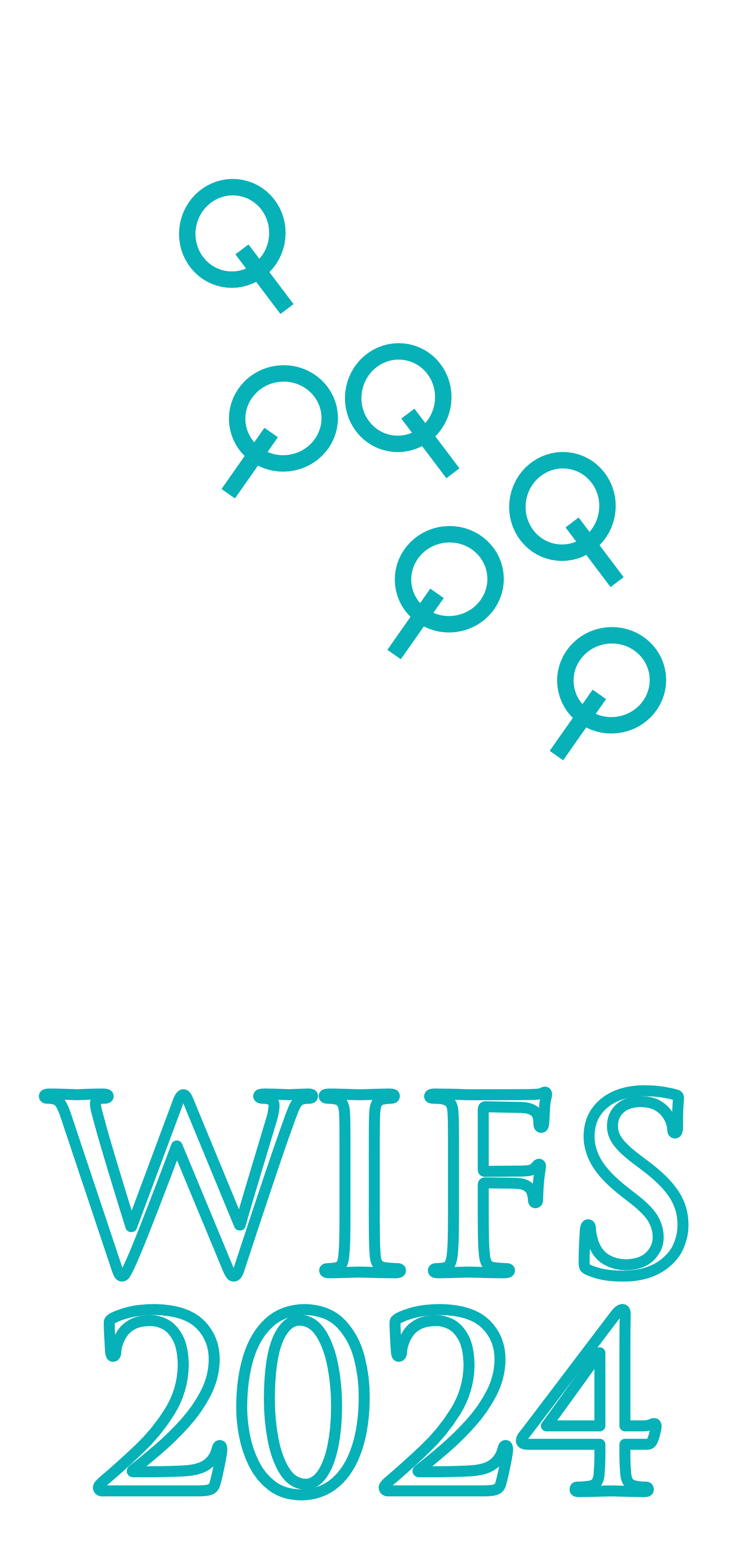WIFS 2024 features a special program of plenary talks on different aspects of information forensics and security. The presentations will be delivered in plenary sessions in the Aula Magna.
Opportunities and Challenges of Digitalization in Digital Forensics
by Lena Klasén, Director of Research at the Department of National Operations of Sweden, and Ajd. Professor Digital Forensics, Computer Vision Laboratory, Linköping University, Sweden
Abstract: Digital forensics plays a crucial role in forensic science by transforming crime scene traces into evidence through advanced technologies. This talk explores the role of digitalization and AI in digital forensics, addressing both potential and challenges in investigations. As digitalization grows, new threats emerge, including bias in AI algorithms and data privacy concerns. Research is vital to harness AI’s benefits while minimizing risks. While AI enhances the fight against digital crimes, it also empowers criminals with advanced tools. Criminals quickly adopt new technologies, making it crucial for the forensic community to stay ahead by incorporating AI advancements to improve accuracy and efficiency in solving crimes. Forensic management needs to guide AI’s integration, ensuring efficiency, robustness, and other key factors. AI also enables large-scale monitoring and rapid analysis of vast and heterogenous digital data for complex crime scenes. Emerging technologies, such as multimodal AI for 3D crime scene modeling (digital twins), are revolutionizing crime scene analysis by providing virtual reconstructions that improve documentation and evidence identification. Examples will be provided on the subject.

Dr. Lena Klasén is since June 2018 Director of Research at the Department of National Operations and Ajd. Professor Digital Forensics, Computer Vision Laboratory Linköping University Sweden. From January 2015 to May 2018, she was appointed Director of the Swedish National Forensic Centre and part of the National Police Commissioner strategical and operational management teams. Dr. Klasén has a PhD in Image Coding at University of Linköping, Sweden and has led industrial- and research organizations in Swedish authorities such as Saab AB, Swedish Defence Research Agency, Swedish Defence Material Administration, Swedish National Laboratory of Forensic Science and the Implementing Committee of the New Police organization, Swedish Ministry of Justice. Her industrial experience also includes product portfolio management at Saab and being involved in starting up innovative companies. Lena has and have held several commissions of trust, e.g. board member and forensic expert.
Biometrics and Behavior for Information Forensics and Learning Assessment in Online Education
by Julian Fierrez, Full Professor at Universidad Autonoma de Madrid, Madrid, Spain
Abstract: Recent advancements in sensor technology have revolutionized the collection of biometric data, offering valuable input data to improve remote biometric identification and behavior analysis (e.g., facial expressions, keystroking, mouse dynamics, touch biometrics, etc.). This talk will discuss recent advances in biometrics and behavior analysis to enhance user-computer scenarios like remote education through trustworthy remote assessment and sensor-based improved user feedback. This research will be discussed in the framework of remote education, but most described methods and results are applicable to many other user-computer and user-smartphone scenarios like social networking, gaming, etc.
As part of this research, the edBB platform was developed, designed to monitor students in remote learning environments using a variety of sensors. The platform enables continuous authentication and the detection of anomalous behaviors (like cheating and fraud). Additionally, key databases have been generated to train deep learning modules that exploit the diverse input signals, such as edBB, mEBAL, mEBAL2, and others. These databases gather essential information for evaluating student concentration and behavioral aspects in e-learning environments (and beyond). Among the features explored in our research, eye blink has proven to be a reliable indicator of attention and fatigue, two key student states which, if properly assessed, can help to improve remote education dramatically. In this talk we will also summarize our recent efforts in developing video-based multimodal Eye Blink and Attention Level (mEBAL) detection methods achieving state-of-the-art performance, even in uncontrolled environments. We will also discuss the integration of multiple input signals (e.g., heart rate, face pose, facial features, etc.) powered by machine learning techniques to significantly improve the accuracy in estimating the students’ cognitive load. Lastly, we will show how the mentioned signals and related models can help to generate learning and information forensics analytics useful for the remote learning environment, e.g. to detect cheating, misbehavior, and as a tool for the instructor to improve remote education

Julian Fierrez received the MSc and the PhD degrees in telecommunications engineering from Universidad Politecnica de Madrid, Spain, in 2001 and 2006, respectively.
Since 2002 he was affiliated as a PhD candidate with the Universidad Politecnica de Madrid, and since 2004 at Universidad Autonoma de Madrid, where he is currently a Full Professor since 2022. From 2007 to 2009 he was a visiting researcher at Michigan State University in USA under a Marie Curie fellowship. His research is on signal and image processing, AI fundamentals and applications, HCI, forensics, and biometrics for security and human behavior analysis. He is actively involved in large EU projects in these topics (e.g., BIOSECURE, TABULA RASA and BEAT in the past; now IDEA-FAST, PRIMA and TRESPASS-ETN). Since 2016 he is Associate Editor for Elsevier’s Information Fusion and IEEE Trans. on Information Forensics and Security, and since 2018 also for IEEE Trans. on Image Processing. He has been General Chair of the IAPR Iberoamerican Congress on Pattern Recognition (CIARP 2018) and the Iberian Conference on Pattern Recognition and Image Analysis (IbPRIA 2019). Since 2020 he is member of the ELLIS Society.
Prof. Fierrez has received best papers awards at AVBPA, ICB, IJCB, ICPR, ICPRS, and Pattern Recognition Letters. He is also recipient of a number of world-class research distinctions, including: EBF European Biometric Industry Award 2006, EURASIP Best PhD Award 2012, Medal in the Young Researcher Awards 2015 by the Spanish Royal Academy of Engineering, and the Miguel Catalan Award to the Best Researcher under 40 in the Community of Madrid in the general area of Science and Technology. In 2017 he has been also awarded the IAPR Young Biometrics Investigator Award, given to a single researcher worldwide every two years under the age of 40, whose research work has had a major impact in biometrics.
Natural Language Processing Approaches to Text Credibility and their Implications for Information Security
by Martha Larson, Professor of Multimedia Information Technology at Radboud University, Nijmegen, Netherlands
Abstract: As we read, we absorb the content of the text we are reading, but we also make judgements about the credibility of the text. Credibility judgements are important because they allow us to decide the importance of what we are reading and whether we should give it serious consideration, i.e., as a basis for our beliefs or decision making.
Today’s natural language processing (NLP) technology is advancing in its ability to automatically assess the credibility of texts. This technology can improve information security by supporting the detection of disinformation. However, it can also pose a new danger, since it has potential to contribute the automatic generation of texts that give the impression of credibility, but should not be taken seriously because they were written by a malicious actor. This talk surveys the state of the art of NLP for credibility, based on results of two EC projects focused on disinformation and AI, AI-CODE and VerAI. It then provides an outlook on possible benefits and threats of this technology for online information ecosystems.

Martha Larson is Professor of Multimedia Information Technology at Radboud University, in Nijmegen, Netherlands, where she is part of both the Institute for Computing and Information Sciences and the Center for Language Studies. Her research spans speech and language technology, multimedia, and recommender systems, with a more recent emphasis on security and privacy. Previously, she researched and lectured in the area multimedia computing at Fraunhofer IAIS, University of Amsterdam, and Delft University of Technology. She is co-founder of the MediaEval Multimedia Evaluation Benchmark and has served on the steering committees of IEEE Transactions on Multimedia and the ACM Conference on Recommender Systems. She is a fellow of ELLIS, the European Laboratory for Learning and Intelligent Systems.

